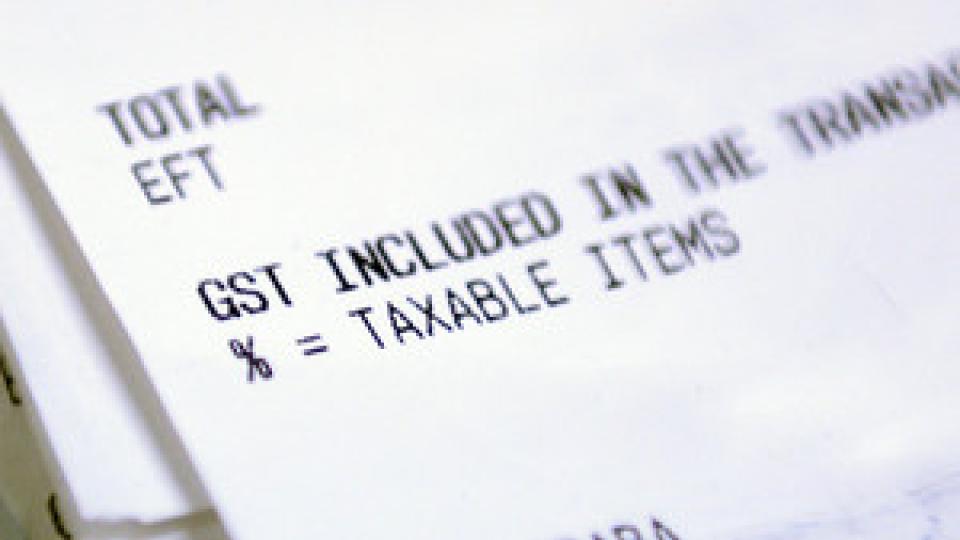Tax the rich and abolish the GST

In yet another policy continuity with Tony Abbott, Prime Minister Malcolm Turnbull is considering raising the goods and services tax (GST).
Once again, this shows the government acting in the interests of big corporations and the super rich against the interests of ordinary people.
The simple truth is that the GST is an unfair tax. Poor people pay a higher proportion of their income in GST than rich people.
GetUp! has been circulating an infographic highlighting that someone on $40,000 a year would pay 11.1% of their income in GST payments, while someone on $180,000 a year would only be taxed 7.8% of their income under a raised GST.
The reason poorer people pay a bigger proportion of their income in GST payments is that they spend a greater proportion of their income on consumer items.
The Australian Council of Social Services (ACOSS) has commissioned research about the impact of a rise in GST from 10% to 15%. The key finding, according to ACOSS's Cassandra Goldie, is that a GST increase is “definitely” regressive because “if you're in the lowest income bracket you're going to be about 7% worse off compared to just 3% if you're in the highest income bracket”.
According to Goldie, everyone on incomes up to $100,000 would be worse off under such an increase in GST even if all of the money raised were used to reduce personal income tax rates. Clearly not all revenue raised by a potential GST increase will be used for “compensation” so it is reasonable to conclude that a large portion — possibly a majority — of ordinary workers (and everyone relying on pensions or benefits) will be worse off if the GST rate is raised.
Turnbull is trying to disguise his support for ratcheting up the GST by claiming that he supports “fair” tax “reform” and that it should not be focused simply on the GST.
However, none of the politicians or prominent policy commentators are suggesting any substantial tax changes other than raising the GST. Further, Turnbull is vague when asked to define “fairness” in the tax system.
Therefore, it is reasonable to conclude that the government will end up explicitly supporting a GST increase with a range of sweeteners to try to make it appear palatable.
In the real world, any sweeteners will likely have only a short-term impact whereas the GST increase will remain. Further, it is likely that any rise in the GST would be followed by reductions in business or high-income personal tax rates as has happened previously.
The only way to effectively resist this push is to argue against the logic of relying on the GST for tax revenue. That means abolishing the GST and increasing taxes on corporations and the super rich.
The Labor opposition is claiming that they will oppose any increase to the GST. However, they will not mount an argument for the logical alternative — taxing the corporate rich — and nobody could seriously expect them to reverse any GST rise next time they win government. After all, their earlier talk of GST “rollback” vanished when Labor was actually in government under Rudd and Gillard.
For all their talk about how regressive any rise in the GST would be, even ACOSS is still saying they are prepared to discuss a rise in the GST with the government. This is particularly dangerous sinceACOSS played a critical role in facilitating the introduction of a GST in 2001.
Even the Greens tax policy fails to call for the abolition of the GST.
The Socialist Alliance will be campaigning in the coming federal election on a platform of raising taxes on corporations and the super rich while easing the tax burden on the poor. Abolishing the GST is a critical part of this campaign.